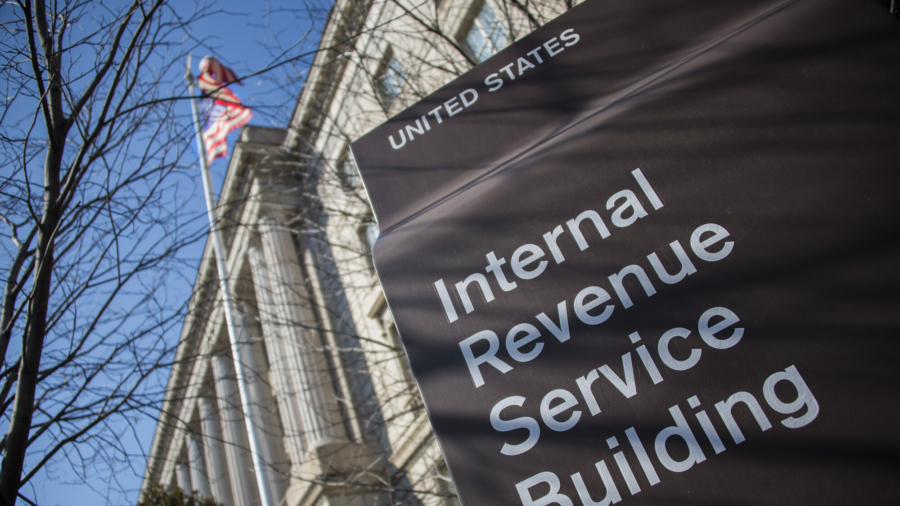Agents of the Internal Revenue Service (IRS) investigated 660 cases of alleged fraud connected to COVID-19 stimulus funds and found more than $1.8 billion over the past two years, according to investigational data made public on Wednesday.
“These cases included a broad range of criminal activity, including fraudulently obtained loans, credits and payments meant for American workers, families, and small businesses,” the IRS Criminal Investigation (IRS-CI) division said in a statement.
The statutory body noted that it had a 100 percent conviction rate for prosecuted cases, with prison sentences averaging 42 months.
Nearly two years ago, President Donald Trump signed the Coronavirus Aid, Relief, and Economic Security (CARES) Act meant to fuel the fight against the CCP (Chinese Communist Party) virus pandemic and sustain the hard-hit economy.
The approximately $2.2 trillion stimulus package included $500 billion in loans to industries, $100 billion for hospitals, $58 billion in aid to airlines, $150 billion for states and local governments, and $45 billion for disaster relief.
“Unfortunately, even during times of crisis, criminals pop their heads out to look for ways to take advantage of those in their most vulnerable state,” IRS-CI Chief Jim Lee said. “Thanks to the investigative work of IRS-CI special agents and our law enforcement partners, we’ve ensured criminals who try to defraud CARES Act programs face consequences for their actions.”
One case highlighted by the agency involved a California family who used stolen identities to submit fraudulent small business loan applications in a scheme that defrauded the government of millions of dollars.
Another case presented by the IRS involved two Florida residents who were sentenced to prison for wire fraud after they submitted false documentation about their companies to fraudulently secure loans from the CARES Act.
Meanwhile, the IRS-CI said the department’s lack of funding has damaged the ability of law enforcement investigators to effectively do their work, noting the workforce of the investigations unit has shrunk by 25 percent over the course of the last decade, a U.S. Treasury Department official told The Associated Press.
“The IRS criminal investigators are some of the best financial investigators in the world. It’s important they are at full strength,” said Danny Glaser, a former Treasury assistant secretary for terrorist financing and financial crimes.

